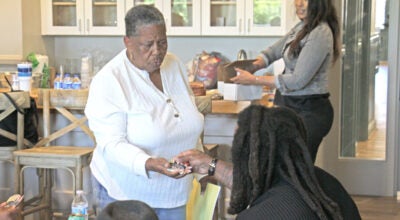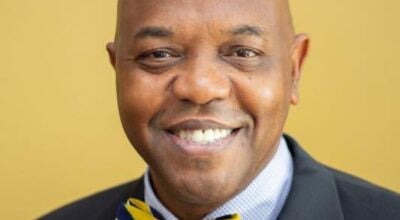Once legal allies now battle in court
Published 10:14 pm Monday, October 28, 2013
The Sanders and Chestnut families reunited Monday, but this time it wasn’t a friendly gathering. Instead, the families were on opposing sides in a civil lawsuit.
The administrator of J.L. Chestnut Jr.’s estate filed a petition in early 2011, asking for a portion of money from Chestnut’s previous partnerships. The trial began on Monday, but stopped during witness examination. Circuit court judge Brady Mendheim said the trial would continue in November.
Several legal organizations are listed as defendants in the case, but most of the focus is on Chestnut, Sanders, Sanders and Pettaway LLC — most known for its involvement in the Pigford Cases or Black Farmers Suits. The Pigford Cases alleged that African American farmers were being denied loans by the U.S. Department of Agriculture because of ethnicity.
The firm’s involvement in the cases was the centerpiece of opening statements and witness examination.
Ron Gaiser, one of the Chestnut’s lawyers, said the family wants a fair and equitable distribution of any revenue Chestnut generated.
“J.L. Chestnut’s family hasn’t gotten their fair share,” Gaiser said. “He has been dead for two years, the Pigford Cases have been going on all this time and the family has received no legal fees since the death.”
Chestnut, Sanders, Sanders and Pettaway LLC lawyers Rose Sanders and Hank Sanders were representing themselves.
“The first Pigford Case was a financial disaster for the firm, we ended up heavily in debt,” Hank Sanders said. “We want a fair distribution. You can’t have a fair distribution without considering the debt owed.”
Rose Sanders estimated the law firm was nearly $2 million in debt because of the first Pigford Case. Since then, the firm has generated more than $5 million in legal fees, Gaiser said.
The family was previously offered $250,000 to settle the matter and declined the offer.
Both sides agreed that J.L. Chestnut’s involvement in the first Pigford Suits is unquestionable, but the witness examination focused on his involvement in the second round of suits.
Selma attorney Prince Chestnut, nephew of the late J.L. Chestnut, said his uncle played a major role in the suits, not only within the firm, but nationally as well.
“The judge specifically named (J.L. Chestnut) in the settlement,” Prince Chestnut said. “In the legal world it is rockstar status to be cited in a case of that magnitude. It is common knowledge, you can pick a random person off the street and they would tell you it was his case.”
Prince Chestnut worked for the firm from Aug. 2001 to Nov. 17, 2006. He wasn’t working for Chestnut, Sanders, Sanders and Pettaway LLC when a provision in the 2008 farm bill permitted any claimant who had submitted a late filing to join a second round of Pigford suits.
J.L. Chestnut’s widow, Vivian Chestnut, and former Chestnut, Sanders, Sanders and Pettaway LLC partner, Katy Cambell also testified Monday.
Campbell also stopped working for the firm before 2008, but was questioned heavily about J.L. Chestnut’s involvement in the second round of cases.
“I do recall talking to him and he said he was working on the black farmers suit and that they would get their due,” Campbell said.
She wasn’t sure of the exact date of the conversation, but said J.L. Chestnut was still active in the suits when she last talked to him.
Mendheim didn’t set a date for the trial to resume, but said he would contact both parties and find a date convenient to both parties.




